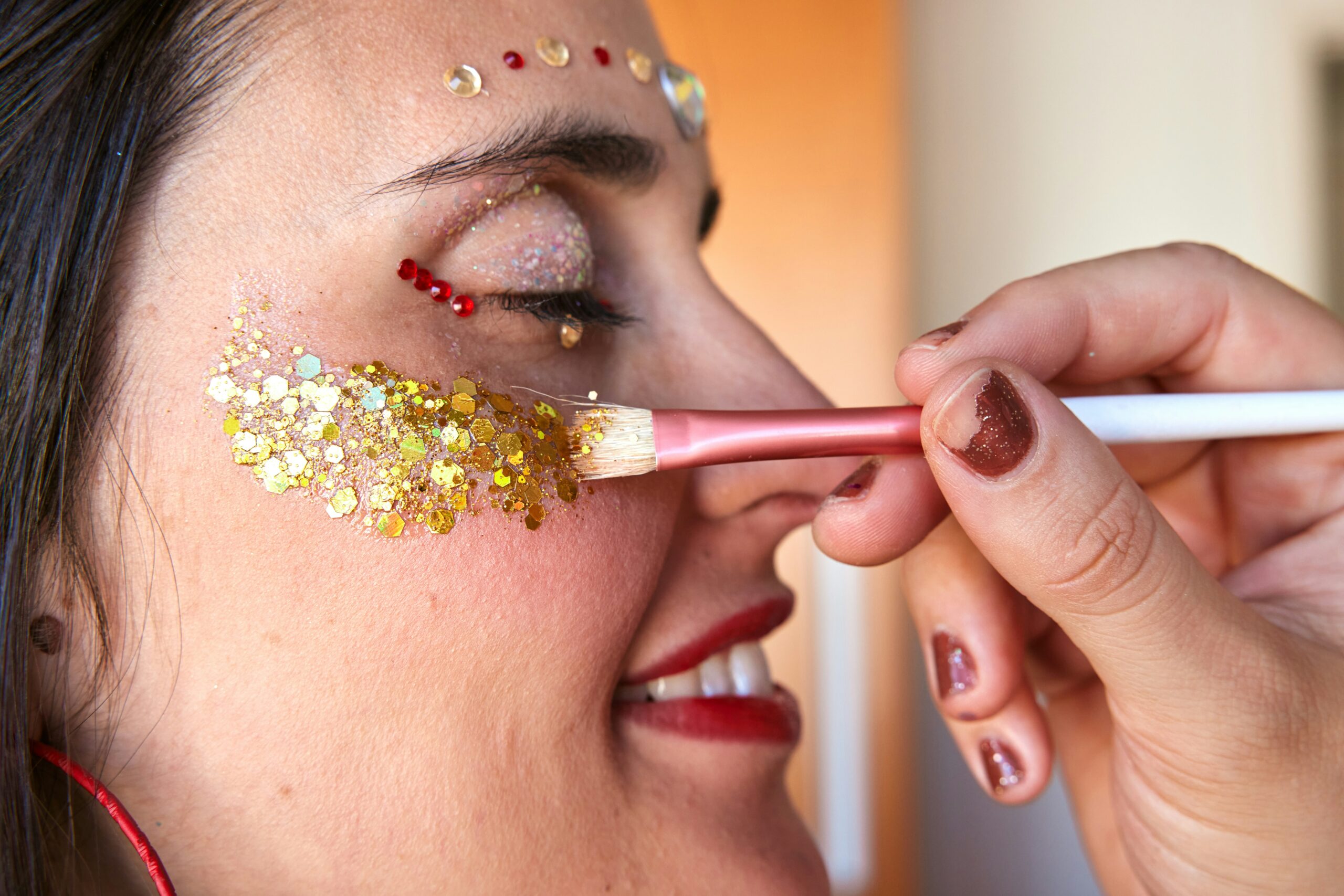Did you know that once you have a baby you’re automatically signed up to accept comments from everyone and their mother? No? Okay maybe not for real, but it certainly felt like that for me. I felt like I was suddenly visible to everyone and receiving comments non-stop— both from people I knew and loved and from strangers at the grocery store.
In my first few months of motherhood I had a seemingly never-ending rotation of visitors, both in real life and virtually, and along with the visitors came the compliments—or should I say, “compliments.”
An innocent statement made with good intentions would send me spiraling. They want to make you swoon. They want your sleep-deprived eyes to light up with gratitude as if their recognition and not your actual baby is the reason you wake up in the morning.
For a brief moment I would consider whether I should say what I was actually thinking. Without fail, I abandoned my ideal response every single time for “Oh, thanks.”
Here are seven things people said to me—all dressed up as “compliments”— during my early months of motherhood, how they made me feel and how I wish I could have responded.
1. “I can’t believe how fast you lost the baby weight!”
I might be in the minority, but I loved my pregnant body. Of course I didn’t love the sciatica or the inability to sleep for longer than a few hours at a time without my hips going numb, but I loved my belly. Any compliment about my postpartum body made me mourn the pregnant body I had. I loved wearing form-fitting clothes that showed off the little bump—and suddenly there was just a bunch of loose skin that I struggled to hide under my baggy, spit-up-stained t-shirts.
Later, I’d cry to my husband.
In the first few months postpartum I was still trying to figure out how I felt about my body. I didn’t want anyone else thinking about my body for me. With every comment about my appearance I’d give a small smile and kindly thank them while running through snarky responses in my head.
“Yes, I did lose the baby weight…because the baby is outside of me now.” “I know you mean well, but commenting on my appearance is really hurtful.” “Did I ask you if I look like I’ve lost weight?”
2. “Your boobs look great”
Apparently breastfeeding permitted others to comment on my chest. My boobs look great? ….Thank you? Yours look lopsided. Yes, people actually commented on my breasts.
There seems to be so much focus on a mother reclaiming her pre-baby body. Why? Let’s normalize the fact that our bodies created, grew, and sustained human life for 40 weeks and maybe give us longer than the chorus to “Quit Playing Games (With My Heart)” to look a certain way.
3. “Breastfeeding was the best choice for your baby.”
I take a deep breath. Maybe a few deep breaths. I had a complicated relationship with breastfeeding. For nearly six weeks after my son was born, I was in severe pain from his latch. We saw multiple lactation specialists. On a good day, I could directly breastfeed my son twice—and for all other feedings I would pump and my husband would feed our son a bottle of either my pumped milk or formula.
Before my son was born I told people I wanted to try to breastfeed, but I wasn’t committed to it. If it didn’t work for us I was very open to formula feeding. Once my son was born that changed a little. While I was still open to formula, it was almost like I had to live up to a challenge that had been set for me, by myself. I had to breastfeed. I had to do everything to make it happen.
I worked really hard to be able to successfully breastfeed my son. I cried often. I screamed in pain. I had mastitis. I had cracked, cut, and sore nipples and areolas.
My son is 11 months old and is still combo-fed—breast and formula—in addition to solid meals.
So when you say my child is lucky to be breastfed you are discounting the physical pain and emotional turmoil I experienced. You’re assuming my child is exclusively breastfed. You’re implying a formula-fed child isn’t lucky.
When you say this I hear “Your child is lucky you’re feeding them.” I’d love to respond “You’re right, my child is lucky that I feed him. If I couldn’t breastfeed I guess he’d just starve.”
4. “You are so lucky you had a C-section!”
My C-section may have been scheduled—but it certainly wasn’t how I ever imagined bringing a child into the world. People would see me for moments at a time, my good moments when I was already out of bed and standing up. They didn’t see that it took me several minutes just to sit up in bed while groaning in pain, and then another several minutes to shuffle to the bathroom, and longer even to sit on the toilet and get myself back up.
No one saw that I was afraid to lay down to fall asleep even though I needed sleep more than anything else because I was afraid of the pain I’d experience when having to get up the next time, in just a few hours, for the next feeding.
No one knew my fear of sneezing without warning—or my fear of laughing too hard. Both actions that would usually cause relief in my body now caused shooting, albeit brief, pain.
I think when people say this what they really mean is “You’re so lucky your vagina is still intact and you didn’t tear”. Or maybe they’re saying “You’re lucky you didn’t poop while pushing!” And honestly, maybe those things are lucky. But if that’s what you mean, say that.
When you say my c-section was lucky I’d love to respond “I don’t think it was lucky that my spinal block failed and I was put under general anesthesia and I didn’t get to meet my son until he was over an hour old. I don’t think I was lucky to need major abdominal surgery but sure, I guess I’m lucky.”
5. “You have such an easy baby!”
As easy as he seems, parenting is really difficult. I’m still learning how to be a mom. I’m still learning how to take care of another being while also, somehow, trying to take care of myself. I am working tirelessly to make sure he is not only calm but also happy all while sacrificing my own sanity in the process.
You’re probably seeing him freshly awake from a good nap and recently fed. You’re probably seeing him before he’s been tortured with tummy time. Or hey, maybe you had a really difficult baby.
You didn’t see the time I spent researching wake windows, how I agonized over making sure he was going down for naps at the exact right moment.
You don’t know how much time I spent trying to figure out what held my newborn’s attention for longer than six seconds.
You weren’t there all the times I sang songs, both real and made up, trying to get him to stop crying.
Maybe he was “easy” but he was also my normal. He was awake every two hours. He would finally fall asleep in our arms only to wake up crying as soon as we put him down. The “easy” baby you saw was a result of a sleep-deprived mother’s obsessive Googling and hyperfocus on his every expression, not wanting to push him too hard to the point where he felt frustration.
I’m not sure which of the following two responses would be my favorite. Either “You’re right, in the hour you saw him he was super easy” or “I guess I do? Maybe? Comparatively? But he’s my only baby and I’m not sure who else you’d like me to compare him to. Unless I’m supposed to compare him to my doll from childhood, in which case he’s significantly more difficult.”
My doll was named Jessica and her eyes would close the second she was in a horizontal position. She wouldn’t wake up unless you picked her up, sometimes sleeping for days at a time. She also didn’t cry when I smushed her face in to see if it would reinflate. Jessica was an easy baby.
6. “Your husband is so helpful!”
This confuses me so much. It seems to be a shocking revelation for the speaker disguised as a compliment for me. Don’t get me wrong, I am incredibly grateful for my husband’s help. He has always been so attentive and so supportive. But isn’t that the bare minimum?
Maybe this is too millennial of me—but I expect both parents to pull their weight whether they birthed the child or not. I’m not saying both parents need to be able to breastfeed (see above, no one needs to breastfeed!), but both should be actively involved in the child’s growth and development.
My husband is just as capable as I am, if not more capable, to grocery shop with baby in tow. He is just as skilled in baby-wearing our son in the carrier and walking around the neighborhood. He can also multitask and use the bathroom while holding our son.
So many things that both parents do elicit different responses. If mom does it, it’s just expected of her; there’s no recognition, no compliment. If Dad does it, he’s the parent of the year.
I already know how fantastic my husband is—I really do—and I am so grateful for everything he does for us every day. But when you say this to me you not only assume I’m oblivious, but you assume my husband is incompetent and an unequal part of the family. “Do you think so little of my husband that you’re shocked to find him pulling his weight? Was your partner not helpful?”
7. “I still can’t believe you had a baby.”
This one cracks me up. It doesn’t insult me the way the others do, but it makes me want to say “What can’t you believe? That someone had sex with me?”
Because honestly, sometimes I can’t believe someone had sex with me either, but it’s a super weird and inappropriate thing for an adult family member to say.
Instead of telling a new parent what you think or observe, I encourage you to ask them questions. Instead of saying “You have such an easy baby!” ask “Is he any easy baby?” Let the new mom tell you they have an easy baby. Instead of “You look great!” try “How are you feeling?” Let them tell you they’re happy to have lost the baby weight.
In the days and months following birth people care about the new mom, of course, but they care far more about the newest little squish. When you ask someone a question it allows them to determine how much, or how little, they want to share. “Um, I guess he’s an easy baby” and “Oh my gosh, he’s so easy! He slept in four-hour stretches last night and went right back down after each feeding with no fuss!” are both perfectly acceptable responses with varying degrees of information shared.
Being a new parent is tough enough without all the unsolicited comments. Make it a little easier on us by asking us questions instead of telling us exactly what you think. And maybe do a load or two of laundry—that would make it easier too.




